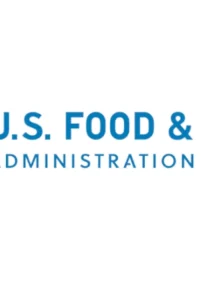October is Breast Cancer Awareness Month, a time when individuals and organizations around the world unite to raise awareness about one of the most prevalent and potentially life-threatening diseases affecting women and, in some cases, men. Throughout this month, campaigns, events, and educational initiatives aim to promote early detection, support those impacted by breast cancer, and advance research efforts. In this article, we will delve into the latest news and developments in the field of breast cancer awareness and research, highlighting the ongoing efforts to combat this disease and improve the lives of those affected by it.
Migraine and Breast Cancer: Is There a Link?
Migraine, a debilitating neurological disorder affecting 14-15% of the global population, has been associated with various health risks, including stroke, high blood pressure, epilepsy, tinnitus, and irritable bowel syndrome (IBS). Recent research has explored a potential link between migraines and breast cancer, both influenced by estrogen levels. While some studies suggest a higher breast cancer risk in individuals with migraines, others indicate the opposite or mixed results.

A study by researchers from the Cancer Center at West China Hospital of Sichuan University in China delved into this connection, utilizing genetic data from genome-wide association studies (GWAS). Their Mendelian randomization analysis revealed that women with any type of migraine face an increased risk of overall breast cancer and estrogen receptor (ER)-positive breast cancer. Notably, women experiencing migraine headaches without aura showed a heightened risk of ER-negative breast cancer, with suggestive associations for overall breast cancer risk.
However, medical experts caution that this study is retrospective and associative, requiring replication in diverse populations to establish a causal relationship. The degree of increased risk is relatively small compared to other genetic factors influencing breast cancer risk. Nevertheless, this research opens the door to future investigations into the complex interplay between migraines, genetics, and breast cancer, shedding light on potential contributors to this disease.
Are Older Women At Risk for Overdiagnosis?
A study involving 54,635 women aged 70 and older found that continuing breast cancer screening after age 70 carries a significant risk of overdiagnosis, which is the detection and treatment of cancers that would not have caused harm in a person’s lifetime. Over 80% of women aged 70-84 and over 60% of women aged 85 and older continued screening. The study showed that overdiagnosis estimates ranged from 31% of breast cancer cases in the 70-74 age group to 54% in the 85 and older group. However, there was no statistically significant reduction in breast cancer-specific death associated with screening in any age group. Overdiagnosis was primarily driven by detecting in situ and localized invasive breast cancer, not advanced cases. The study emphasizes the importance of considering patient preferences, risk tolerance, comfort with uncertainty, and willingness to undergo treatment when making screening decisions for older women. The study’s limitations include the potential misclassification of diagnostic mammograms as screening and the inability to adjust for certain breast cancer risk factors.
Vesta Teleradiology: Mammogram Interpretations, Day and Night
In conclusion, as healthcare practices navigate the intricacies of mammogram interpretations, our company is here to provide unwavering support. We understand the importance of accurate diagnoses in breast health, which is why our dedicated team is available day and night, even during holidays, to assist healthcare professionals. Your commitment to patient care is our priority, and we’re here to ensure that you have the expertise and assistance you need for precise mammogram interpretations.



